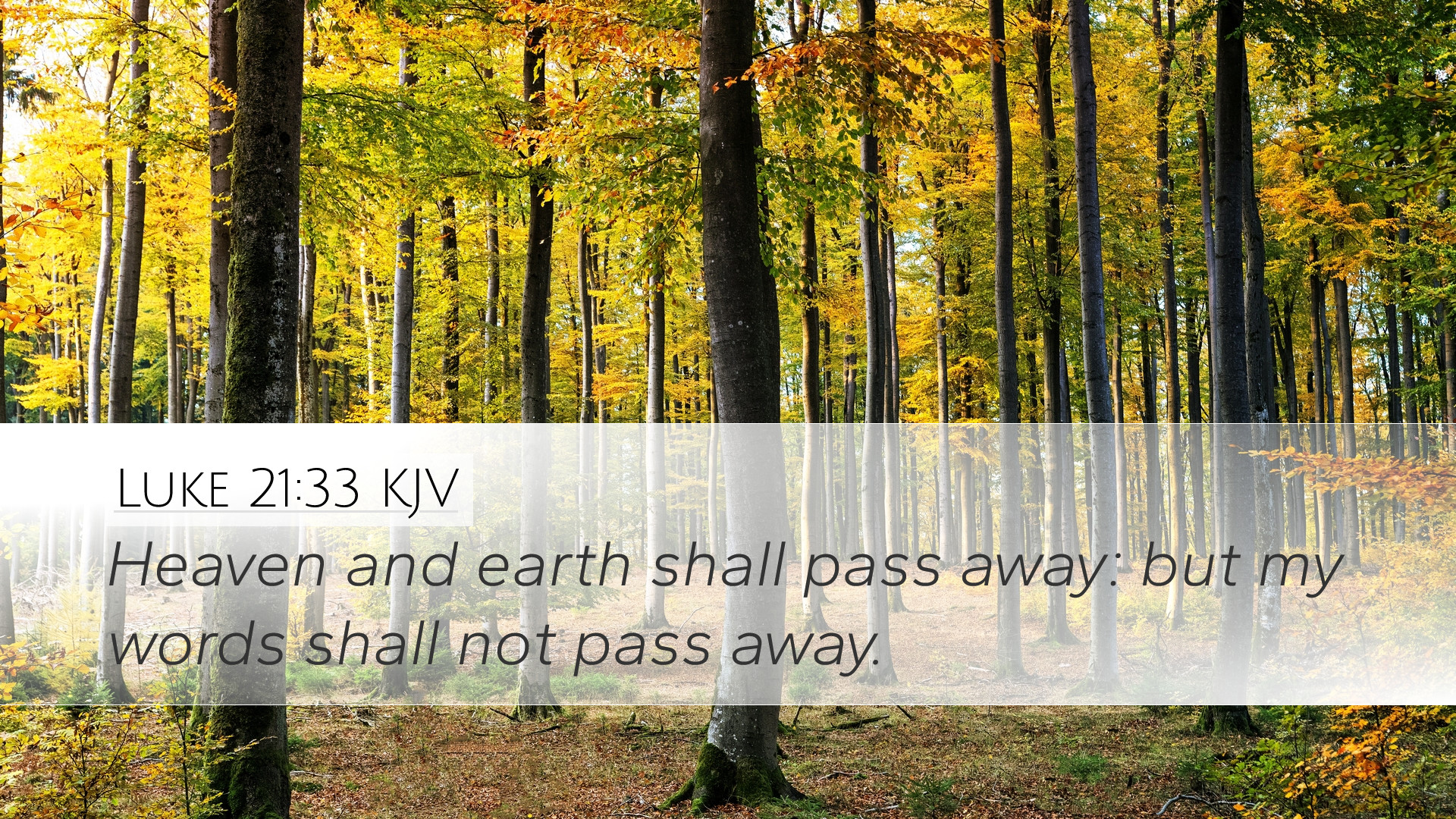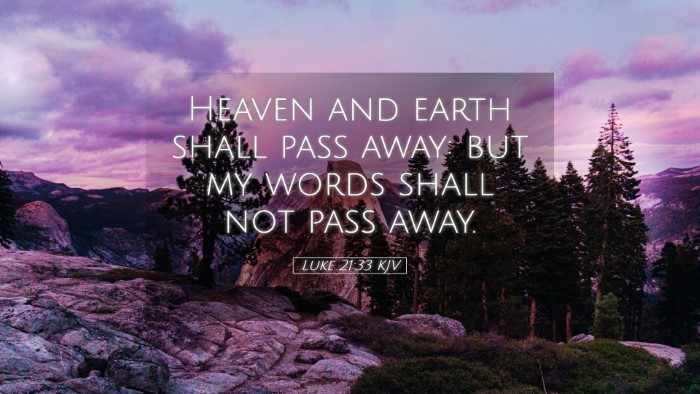Commentary on Luke 21:33
Verse: "Heaven and earth shall pass away: but my word shall not pass away." (Luke 21:33, KJV)
Overview and Context
This verse is nestled within a broader discourse where Jesus speaks about the signs of the end times and the assurance of God's enduring truth amidst the transient nature of the created world. In this context, the juxtaposition of the perishable nature of heaven and earth against the eternal quality of God's word reflects a profound theological assertion about the supremacy of divine revelation.
The Eternal Nature of God's Word
This statement by Jesus emphasizes the abiding nature of His words. Even as the cosmos may undergo cataclysmic changes, the essence and the promises captured in His teachings are unshakeable. Commentators such as Matthew Henry highlight that the phrase underscores the unfailing reliability of God’s word, which remains a guiding light and source of hope for believers.
Heaven and Earth Shall Pass Away
In this declaration, Jesus alludes to what is found in prophetic scripture whereby the heavens and the earth are subject to transformation and, ultimately, to divine judgment. Albert Barnes elaborates that this part of the verse serves as a reminder of the temporal nature of earthly existence. Everything in the material world, no matter how mighty or noble, will be brought to an end. This serves not only as a warning but as an invitation to focus on what truly holds value.
Contrast with Human Words and Promotions
Adam Clarke points out the vast difference between human proclamations, which can be fickle and unreliable, and the steadfastness of God's declaration. Believers are therefore encouraged to anchor their faith in the eternal truths revealed by God, rather than the ephemeral insights of man. The assurance of God’s word insisting on its eternal quality serves as solace and strength to endure trials and tribulations that might arise as the end of times draws closer.
The Implications for Believers
The implications of this verse are profound for the life of faith. It beckons a reflection on where one places their trust and hope. Matthew Henry encourages believers to cultivate a deep and abiding relationship with the Scriptures, for they are the vessel through which God's truth is manifest. As heaven and earth are destined to pass away, the word of God remains as an eternal foundation for believers.
- A Source of Strength: In facing life's inevitable changes, believers can find solace in the permanence of God's word.
- A Call to Faithfulness: The verse calls individuals to remain steadfast in their faith, even amidst uncertainties or challenges.
- An Invitation to Study: Understanding the eternal nature of God's word calls for diligent study and application in one's life.
Theological Reflection
The notion that God's word endures challenges both practical and philosophical ideas about truth and reality. The declaration from Jesus invites theologians to explore the inerrancy and infallibility of Scripture. Albert Barnes discusses that such a concept is vital not only for theological discourse but for practical Christian living. If God's word is eternal, then so too are its implications for justice, mercy, and the moral fabric of society.
Conclusion
In summary, Luke 21:33 delivers a vital theological cornerstone that insists on the reliability and permanence of God's word amidst the transient realities of life. Through the insights of esteemed commentators like Matthew Henry, Albert Barnes, and Adam Clarke, we are reminded that while the material world may perish, the truth God has revealed will remain an everlasting testament to His faithfulness. For pastors, students, theologians, and scholars, this verse serves not only as a point of academic study but as a vibrant encouragement to live in the light of God's enduring truth.


